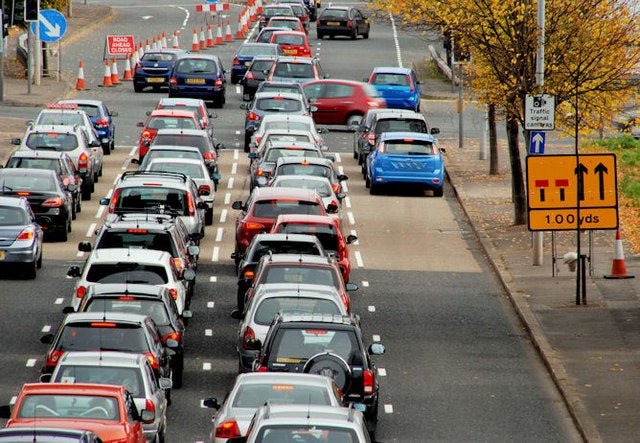Your support helps us to tell the story
From reproductive rights to climate change to Big Tech, The Independent is on the ground when the story is developing. Whether it's investigating the financials of Elon Musk's pro-Trump PAC or producing our latest documentary, 'The A Word', which shines a light on the American women fighting for reproductive rights, we know how important it is to parse out the facts from the messaging.
At such a critical moment in US history, we need reporters on the ground. Your donation allows us to keep sending journalists to speak to both sides of the story.
The Independent is trusted by Americans across the entire political spectrum. And unlike many other quality news outlets, we choose not to lock Americans out of our reporting and analysis with paywalls. We believe quality journalism should be available to everyone, paid for by those who can afford it.
Your support makes all the difference.Car drivers who overstay their time in parking bays will get a ten minute grace period before they are given a ticket, under new rules.
The change comes amid a raft of measures by the Government to encourage people to use their car in town centres.
In a separate move likely to make life more difficult for pedestrians and bus passengers, councils will no longer be able to enforce bus lanes or zebra crossings using cameras.
The Government says its deregulation will help businesses, but campaigners are warning that more motor traffic in town centres could make them unpleasant and even put lives at risk.
The ten minute grace period will only apply to council-run car parks and not privately operated ones.
The Local Government Association, which represents councils, said many local authorities already allowed a grace period and warned that encouraging traffic into town centres would make them more unpleasant for pedestrians.
“We are concerned that government has rushed through today’s announcement and failed to fully consult councils on the detail of the regulation,” Cllr David Sparks, the Association’s chair, said.
“Beyond the headlines, what is particularly worrying is the detail of these proposals which could make roads less safe for vulnerable pedestrians and inconvenience millions of motorists and commuters.”
The group said it had “serious concerns” about the plan to ban the use of CCTV to enforce zebra crossings and bus lanes.
“This decision could endanger vulnerable road users such as children, blind or disabled people and create delays for millions of bus users,” Cllr Sparks said.
But Communities Secretary Eric Pickles argued motorists should be able to “go about their daily business” without having rules aggressively enforced against them.
He said drivers who broke the rules were sometimes made to feel like they had done something wrong.
“We are ending the war on drivers who simply want to go about their daily business. For too long parking rules have made law-abiding motorists feel like criminals, and caused enormous damage to shops and businesses,” he said in a statement.
“Over-zealous parking enforcement undermines our town centres and costs councils more in the long-term. Our measures not only bring big benefits for high streets, motorists and local authorities - they put common sense back into parking.”
But the charity Sustrans, which works to help people travel by foot, bike, and public transport said a parking "free for all" would not help businesses and could be counterproductive.
“The myth of unfair parking charges and over-zealous enforcement ignores the real problems facing the high street. Cars don’t spend money, people do," said Allan Williams, policy advisor to the charity.
“The evidence is clear that retailers overestimate the proportion of customers that travel by car, and that pedestrians, cyclists and bus users spend more on the high street than those in cars. The key to saving our high streets is to make them safer and more pleasant and accessible places for everyone, not a parking free for all.”

Join our commenting forum
Join thought-provoking conversations, follow other Independent readers and see their replies
Comments